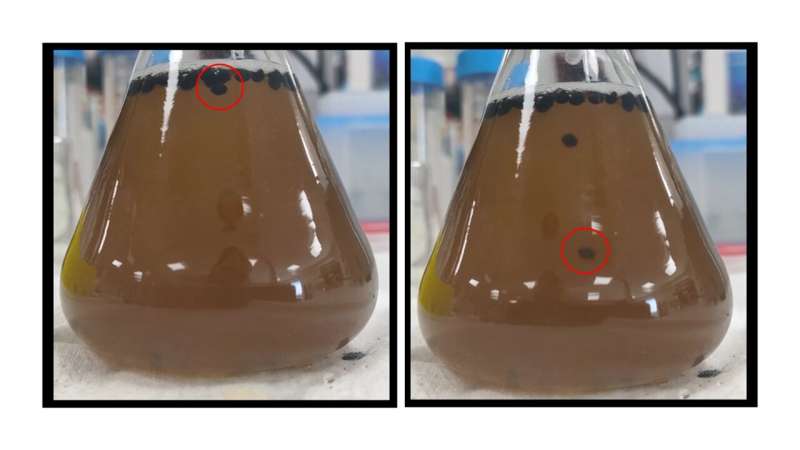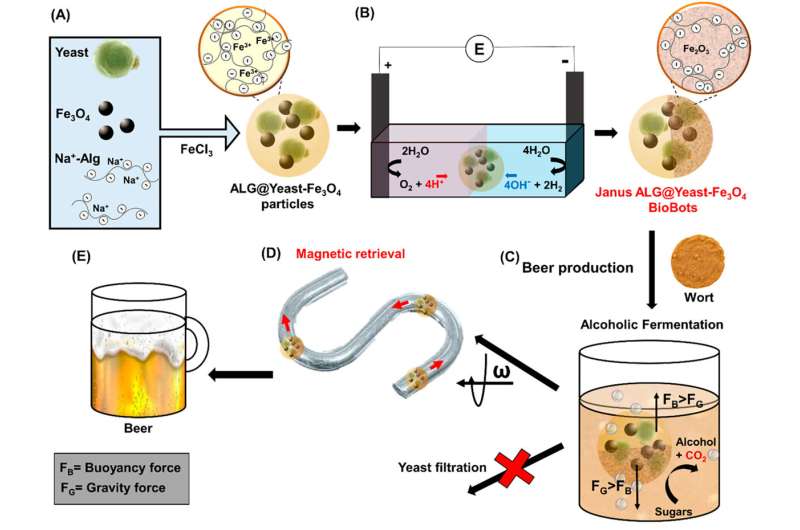This article has been reviewed according to Science X's editorial process and policies. Editors have highlighted the following attributes while ensuring the content's credibility:
fact-checked
peer-reviewed publication
trusted source
proofread
'BeerBots' could speed up the brewing process

Craft brewers are continuously upping the ante and coming up with innovative ways to make or flavor their newest beers. Now, researchers are adding a new twist of their own, speeding up the brewing process with beer-making mini-robots or "BeerBots." Reporting in ACS Nano, the team shows that these self-propelled, magnetic packages of yeast can make the fermentation phase go faster and cut out the need to filter the beverage.
Beer, one of the world's most-consumed drinks, can take a while to brew. In the first step, sugars are extracted from grains, such as malted barley, to create a watery solution called wort. Next, yeasts ferment those sugars, converting them into alcohol, carbon dioxide gas and new flavor compounds. This step can take as long as four weeks, and during that time, unwanted microorganisms can get in and spoil the final product with sour flavors.
Previous researchers have suggested that encapsulating the yeast in polymer capsules could lessen the chance of spoilage by speeding up the process. So, Martin Pumera and colleagues wanted to develop a self-propelled bot to both make fermentation proceed more quickly and simplify the separation of yeast from the final beer.

The researchers made 2-mm-wide BeerBot capsules by combining active yeast, magnetic iron oxide nanoparticles and sodium alginate from algae and dripping the mixture into a ferric chloride solution. Then they made one side of the spheres porous by exposing that half to an alkaline solution in an electrochemical cell.
Initial experiments showed that the yeast-containing beads could ferment sugar and produce carbon dioxide bubbles that propelled them upward. When they got to the surface, they released carbon dioxide into the air, and then sank again, resulting in a bobbing motion.
When the capsules were used to ferment malted barley wort, the team found that the self-propelled BeerBots transformed sugars faster than free yeast cells. As the sugar was used up and fermentation ceased, the yeast-containing capsules sank to the bottom of the flask. This made it easy to separate the yeast from the final product with a magnet, rather than with a filtration step that is currently required to remove free yeast cells.
Additionally, the collected BeerBots were active for up to three more wort fermentation cycles. Based on these results, the researchers say that BeerBots could produce tasty brews faster.
More information: Roberto Maria-Hormigos et al, Nanostructured Hybrid BioBots for Beer Brewing, ACS Nano (2023). DOI: 10.1021/acsnano.2c12677
Journal information: ACS Nano
Provided by American Chemical Society





















